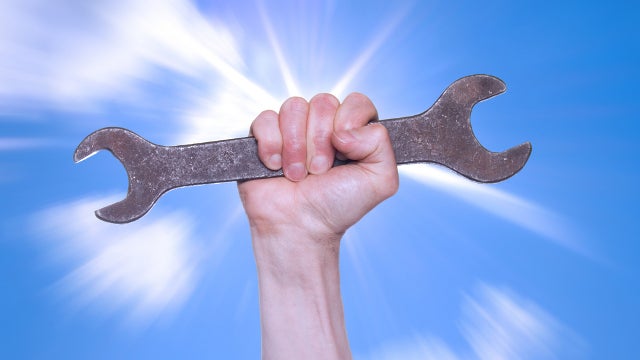
In the 1985 book, Habits of the Heart, sociologists Robert Bellah and Richard Madsen interviewed a young nurse, Sheila Larson, about her religious beliefs.
“I believe in God. I’m not a religious fanatic. I can’t remember the last time I went to church. My faith has carried me a long way. It’s Sheilaism. Just my own little voice…It’s just try to love yourself and be gentle with yourself. You know, I guess, take care of each other. I think He would want us to take care of each other.”
As a result of this interview, Sheliaism is a term now synonymous with do-it-yourself religious or spiritual systems (at least in the sociology world).
Sheilaism doesn’t seem so bad to me. I believe people should be free to practice religion however they choose, and I believe that it’s better to have some sort of spiritual or religious value system than none at all.
Muslims, however, would disagree. I’m still reading The Complete Idiot’s Guide to Understanding Islam so forgive me for not quoting more sophisticated sources, but the author summarizes the Islamic arguments against Sheilaism very well.
“Muslims look aghast these days at the efforts of Western popular culture to promote the idea that we are all gods inside our hearts or that God lives in us, and we can tap into His power like some sort of personal energy reservoir. It seems people are creating God in their own image and justifying any action they engage in by claiming that ‘God is Love’ and so will condone all types of behavior.”
“The Qur’an warned us long ago that the desire of Shaytan is to separate us from God, and what better way for him to succeed than to get all of us to call ourselves gods and goddesses or to make up gods of our own!”
The danger of Sheilaism then, is that you simply do whatever you want and contort your own view of religion to justify your behavior (whether good or bad).
Religion, on the other hand, is very good at moderating your behavior, because it forces you to conform to something outside of yourself, and more importantly, greater, than yourself.
Yesterday, I wrote about how the Imam raised over $6000 in 5 minutes because of a sermon about the day of judgment.
I’m finding, however, that my commitment to prayer has already affected my behavior (in a very small way).
Yesterday, my girlfriend was irritated with me (for something not my fault, naturally). I wanted to say something snarky, but I knew I had to pray within the next hour, and I did not want to do that prayer with that on my conscience.
It took all my willpower, but I managed to keep my mouth shut.
My girlfriend apologized a short time later and I was able to conduct my prayer guilt-free.
Victory!
Had I subscribed to “Dale-ism,” my own brand of religion, I probably would have made an extremely witty and biting comment that would have felt great for a moment but would only have prolonged the quarrel.
If people were good at moderating their behavior on their own, then the role of religion would be severely diminished.
It’s difficult to hold ourselves to a high standard because it is incredibly easy to give ourselves a pass and it’s easy to rationalize our own bad behavior. Sheilaism will always be easy on Sheila, because there is no distinction between the two.
Religion, on the other hand, forces you to acknowledge the gap between yourself and God and encourages you to bridge it through good actions.
I imagine that to make a convincing case for Sheilaism, you’d have to somehow come up with a moral/spiritual/ethical system that is superior to an established and surviving religion, and most importantly, follow it.
This is a high standard to achieve, which is why most people who are interested in living a spiritually and morally sound life are better off following a tried-and-true religion than coming up with something on their own.
Unless you have the discipline of a saint, choose Islam (or any other established religion) over Sheilaism.
Note: If you’d like to convert to Dale-ism, however, let me know.